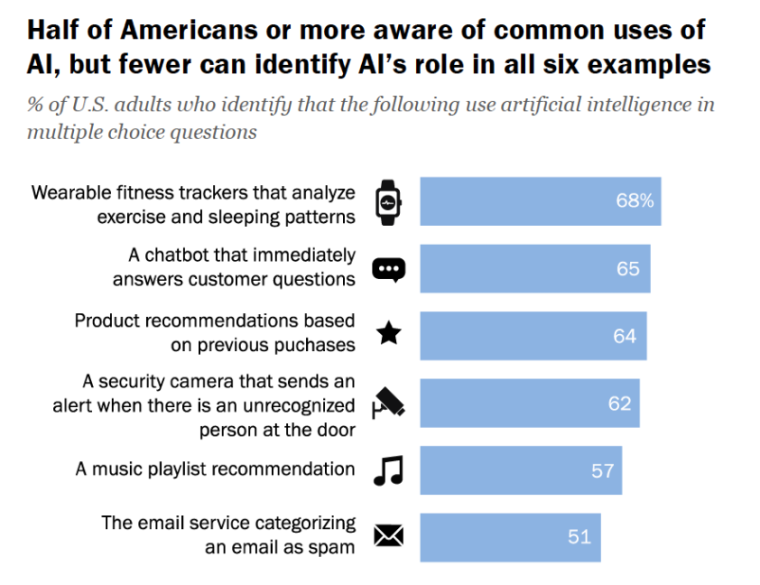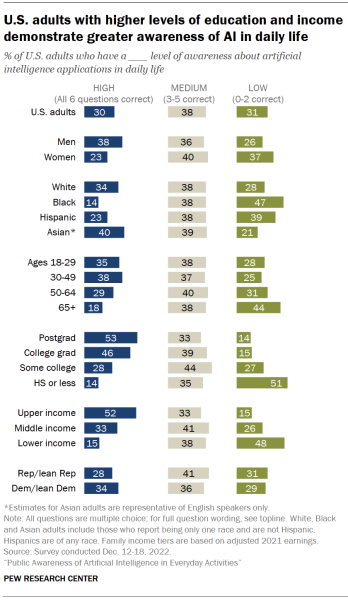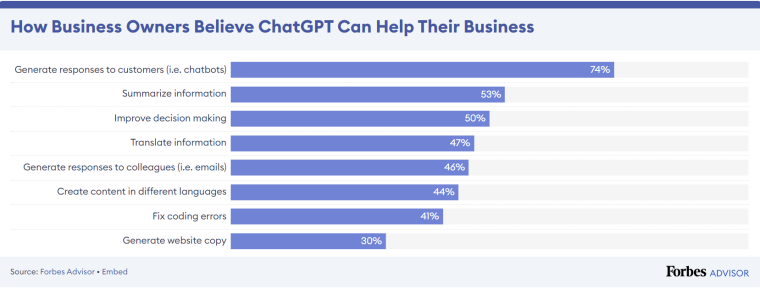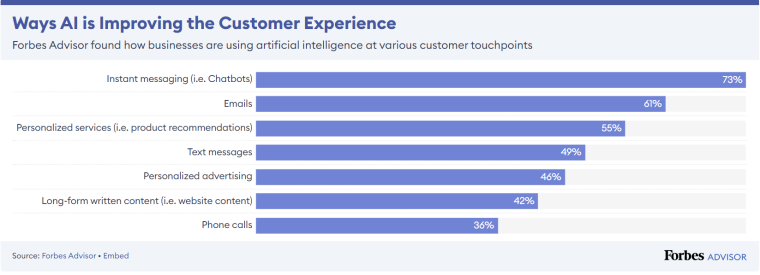
Mira Murati, OpenAI’s chief technology officer, believes AI is poised to become a daily companion to many. The forecast comes as 27% of users already claim they interact with AI at least several times a day.
In a recent interview with Bloomberg, Murati discussed how artificial intelligence has the potential to enhance education and productivity.
She claimed that AI adoption could soon become mainstream, with many growing a daily relationship with the technology, which could provide personal advice and assistance similar to Alexa or Siri.
Told you guys the AI hype is real. I use Google’s Bard and ChatGPT almost daily. It’s like having an expert at my command. I’ve been trading $AI since the mid teens, but unfortunately only have a small position. AI will drive the market forward. Scary if used for evil though. pic.twitter.com/w59PVqAstF
— Losing2Winning Trades (@Lose2Win_Trades) June 15, 2023
Murati also recognized the possible downsides, such as the worst-case scenario of AI ending human existence.
“There is certainly a risk that when we have these AI systems that are able to set their own goals, they decide that their goals are not aligned with ours, and they do not benefit from having us around,” she said.
In contrast, veteran venture capitalist Reid Hoffman rejected the idea of AI destroying humanity, stating it is highly unlikely.
He predicted that AI integration into daily life will be faster than the iPhone and the internet.
Hoffman was initially interested in AI investing after encouragement from his friend and PayPal colleague, Elon Musk.
However, he has since criticized Musk for fear-mongering about AI and attacking his former company, OpenAI.
Pew Research Reveals 27% Use AI On a Daily Basis
According to a new survey from the Pew Research Center, 27% of Americans interact with artificial intelligence (AI) on a daily basis.
Conducted in December last year, the survey found that another 28% of individuals encounter AI about once a day or several times a week.
On the other hand, 44% believe they do not regularly interact with the technology, which highlights the need for better education about AI.
Although the majority of respondents knew about common applications of AI, such as customer service chatbots and custom product recommendations in online shopping, only 30% could correctly identify all six uses of AI presented in the survey.
The most challenging question was related to email services categorizing messages as spam, with only 51% selecting the correct answer.
Meanwhile, wearable fitness trackers that analyze exercise and sleeping patterns were the most easily identifiable application, with 68% correctly choosing the option with AI.

Despite the increasing presence of AI in everyday life, just 15% of Americans are more excited than concerned about its use, according to the survey.
Comparatively, 38% are more concerned than excited, while 46% feel a mix of both emotions. These figures have remained relatively stable since a similar survey was conducted in November 2021.
Those More Educated Have a Better Grasp of AI Tools
The report from Pew Research also revealed that higher levels of education and income appear to be key factors in having a better grasp of AI tools.
The study found that 53% of respondents holding a postgraduate degree were able to identify examples of AI use cases in real-life across six multiple-choice questions, whereas only 14% of those with a high school diploma or less answered all six correctly.
Similarly, 52% of those categorized as higher income demonstrated high awareness of AI, compared to only 15% of those considered to earn lower incomes.
Younger respondents were also more aware of AI. Around 75% of those aged 18-29 were able to identify customer service chatbots, compared to only 45% of those aged 65 and over.
Men performed better than women, with 38% answering all six questions correctly, as opposed to 23% of women.

The research found no significant differences between Democrats and Republicans in terms of awareness of AI.
Almost All Businesses Expect to Use AI to Improve Efficiency
As reported, almost all businesses (97%) expect to use AI to improve their efficiencies and cut costs.
More specifically, a large majority of business owners (74%) said they expect ChatGPT will help them in generating responses to customers through chatbots, according to a survey conducted by Forbes Advisor.
The survey revealed that many businesses see promise in the usefulness of AI, such as streamlining email communications with colleagues (46%), generating website copy (30%), fixing coding errors (41%), translating information (47%), and summarizing information (53%).
Half of the respondents also shared their belief that ChatGPT could contribute to improved decision-making (50%) and enable the creation of content in different languages (44%).

It is worth noting that AI is being used across a wide range of areas, including customer service, cybersecurity, fraud management, customer relationship management, inventory management, content production, accounting, supply chain operations, recruitment, and audience segmentation.
AI is also being used to enhance the customer experience across all touchpoints.
Approximately 73% of businesses use or plan to use AI-powered chatbots for instant messaging, 61% use AI to optimize emails, and 55% deploy AI for personalized services such as product recommendations.
Moreover, AI is being used for website copy (42%) and personalized advertising (46%).
